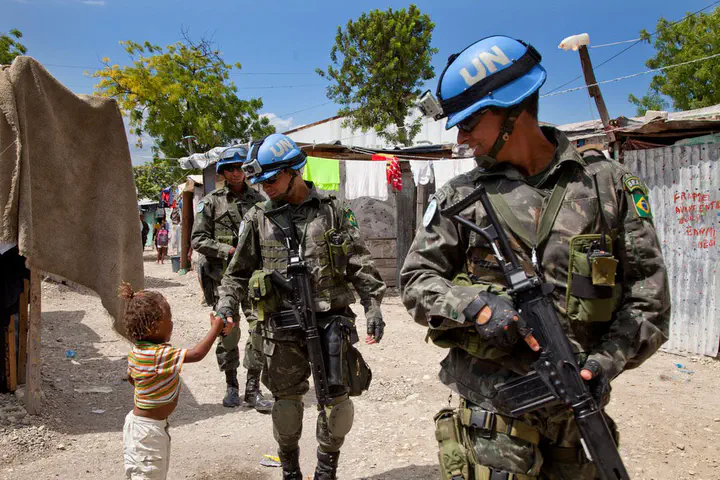Tangled Up in Blue: The Effect of UN Peacekeeping on Nonviolent Protests in Post–Civil War Countries
 Image credit: Jesus Serrano Redondo via Wikimedia Commons
Image credit: Jesus Serrano Redondo via Wikimedia CommonsAbstract
Do peacekeeping missions facilitate nonviolent political contention in post–civil war countries? The nonviolent expression of political grievances is a crucial part of the post–civil war peace-building process but is understudied thus far. We claim that the presence of peacekeepers significantly contributes to establishing a secure environment for nonviolent political contention, particularly nonviolent public protest. In addition, we claim that peacekeeping missions with personnel from countries with robust civil societies are more likely to promote nonviolent political contention because of prior socialization to civic engagement and bottom-top political participation. This is particularly true for UN police personnel (UNPOL), who both train local police forces and have the most direct interaction with protesters. We test our hypotheses using a newly crafted dataset on nonviolent protests in post–civil war countries and peacekeeping missions’ presence, size, and home-country composition. We find that peacekeeping missions’ presence significantly increases nonviolent protests in post–civil war country-years. This effect is largely explained by the presence of UNPOL from countries with strong civil societies. Our findings have important implications for our understanding of post–civil war political revitalization and policy implications for the composition of peacekeeping missions.